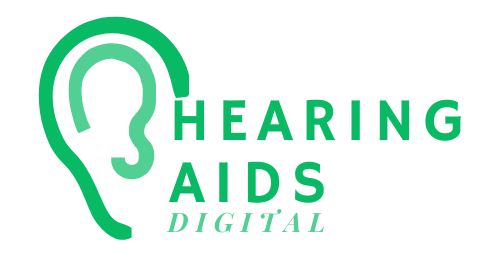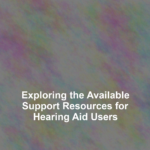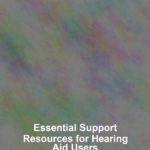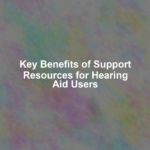Navigating the world of hearing aids can sometimes feel like trying to find your way through a labyrinth; without a proper guide, youG??re likely to hit a dead end or two.
As you adjust to the new soundscape provided by your hearing aid, youG??ll find that the right support resources are critical to ensuring a smooth journey.
YouG??ve invested in this tool to enhance your quality of life, and now itG??s important to understand that professional fitting, routine maintenance, and reliable technical support form the pillars of an effective hearing aid experience.
Engaging with online communities and educational workshops can empower you with the knowledge to optimize your deviceG??s performance.
LetG??s explore why each of these components is indispensable and how you can access them, so you can continue on your path with confidence and clear sound.
Professional Fitting and Consultation
Why is professional fitting and consultation crucial when youG??re using hearing aids? Well, imagine walking in shoes that donG??t fitG??youG??re uncomfortable, right? Same goes for hearing aids. They must be tailored to your earsG?? unique shape and your specific hearing loss to ensure comfort and effectiveness.
Audiologists have the expertise to adjust your devices perfectly. They take into account the degree and type of hearing impairment you have. TheyG??ll configure your hearing aids to amplify sounds correctly, so you donG??t miss out on the nuances of conversation or the subtleties of natureG??s music.
During a consultation, youG??ll learn how to maintain your hearing aids, which extends their life and keeps them working at their best. YouG??ll also get tips on how to adjust to wearing them, because letG??s face it, itG??s a change, and all changes take some getting used to.
Maintenance and Care Guidelines
To maximize the lifespan and performance of your hearing aids, itG??s essential to follow a routine of regular maintenance and care. Every day, youG??ll need to remove any accumulated earwax or debris using a soft, dry cloth or a special brush designed for this purpose. DonG??t use water or solvents, as they can damage the delicate electronics.
You should also check the batteries frequently. Low batteries can cause poor performance, so change them as needed or charge them if youG??re using a rechargeable model. Make sure youG??re turning off your hearing aids when youG??re not using them to conserve battery life.
Keep your hearing aids away from heat and moisture. Store them in a dry, cool place when youG??re not wearing them. If youG??re in an environment with high humidity, consider using a dehumidifier specifically designed for hearing aids overnight.
Online Communities and Forums
While maintaining your hearing aids is crucial for their performance, connecting with others through online communities and forums can provide additional support and insights. YouG??re not alone on this journey, and these platforms can be a treasure trove of shared experiences and tips from individuals who truly understand your situation.
HereG??s what youG??ll find in online spaces:
-
Personal Stories: Hear firsthand how others have overcome challenges and improved their hearing aid experience. These narratives can be both uplifting and practical, offering strategies that might work for you too.
-
Troubleshooting Advice: Got an issue with feedback or connectivity? Chances are, someone else has had the same problem and figured out a solution. Save time and frustration by learning from their experiences.
-
Latest Updates: Stay informed about new hearing aid technologies and features. Members often discuss the latest gadgets and how theyG??ve impacted their lives.
-
Local Events and Meet-ups: Discover events in your community where you can meet other hearing aid users face-to-face. ItG??s a fantastic way to build your support network and make new friends.
Accessing Technical Support
When youG??re facing technical difficulties with your hearing aids, reaching out to professional technical support can swiftly put you back on track. Manufacturers typically offer dedicated helplines that you can call for assistance. ItG??s important to have your hearing aid model and serial number on hand when you call, as this will help the support team provide you with the most accurate and efficient help.
DonG??t hesitate to ask for step-by-step guidance or request written instructions if youG??re struggling to understand the troubleshooting process. Some companies also provide online chat support, which can be a convenient way to get help without having to make a phone call.
If you need in-person support, you can visit your audiologist or a local hearing aid clinic. TheyG??re equipped to diagnose and fix a range of issues on the spot. Additionally, they might offer walk-in hours or same-day appointments to address urgent concerns.
Training and Educational Workshops
Beyond reaching out to technical support, you can also enhance your hearing aid experience through training and educational workshops offered by many hearing healthcare providers. These sessions are designed to help you get the most out of your hearing aids, ensuring youG??re comfortable and confident in their use.
HereG??s what youG??ll typically learn at these workshops:
- Proper Care and Maintenance: Discover the best practices for cleaning and caring for your hearing aids to extend their lifespan and maintain optimal performance.
- Maximizing Features: Learn how to use the advanced features of your hearing aids, such as directional microphones, Bluetooth connectivity, and tinnitus masking.
- Communication Strategies: Gain insights into effective communication techniques that work in tandem with your hearing aids to improve your listening experience in various environments.
- Troubleshooting Common Issues: Become adept at identifying and resolving common problems you might encounter, reducing the need for professional repairs.
Attending these workshops empowers you with knowledge and skills that can significantly improve your daily interactions. Remember, being proactive in your hearing health can lead to a more fulfilling and independent lifestyle. DonG??t hesitate to ask your hearing care provider about upcoming workshops that you can benefit from.
Conclusion
YouG??ve got the tools you need to thrive with your hearing aids. Remember, professional fittings ensure the perfect match, while proper maintenance keeps them at peak performance.
Dive into online communities for shared experiences, and donG??t hesitate to reach out for technical support when needed. Keep learning through workshops to fully harness your hearing aidsG?? potential.
Embrace these resources and youG??ll not only hear betterG??youG??ll live better.









